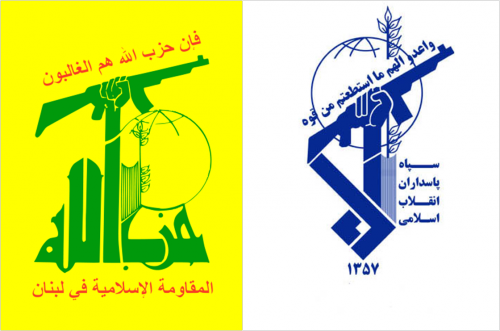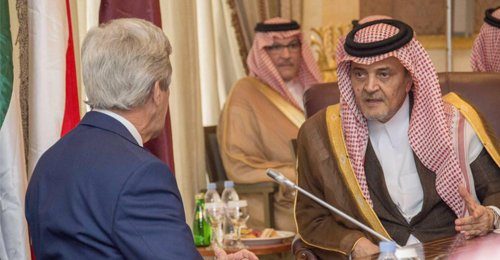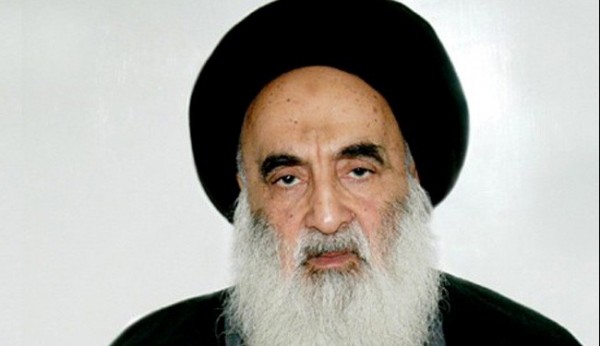
The London based al-Arabi al-Jadeed newspaper reported on Sunday that Iran ordered Hezbollah to send fighters to Iraq in order to help it liberate the city of Mosul from the Islamic State and the Hezbollah chief agreed to send 800 fighters
” Hezbollah leader Hassan Nasrallah agreed to send about 800 men from elite units to participate in the anticipated battle.” Al-Arabi al-Jadeed sources were quoted as saying
Al-Arabi al-Jadeed source cited the similarity between the topography of southern Lebanon and the mountainous terrain of Mosul as an advantage in the integration of Hezbollah forces into the fighting in Mosul, saying that the Lebanese men are already familiar and experienced fighters in both open areas and narrow streets.
The fighters, according to the report, will enter Iraq equipped with light arms. Once there, Iran will equip the men with heavy weapons.
The source told al-Jadeed that the Hezbollah fighters will deploy to Iraq within two-to-three weeks. The men are expected to be stationed in the northern Iraqi city of Samarra, where they will work to draft plans for the attack on Mosul.
Samarra is the headquarters of the Iran-led Shiite militia operation against ISIS.
The current war against ISIS is being led by General Qassem Suleimani the head of the Qods Force, which is the foreign arm of Iran’s Revolutionary Guards Corps . According to observers Suleimani has been organizing Iraqi forces and has become the de facto leader of Iraqi Shiite militias that are the backbone of the fight. He is listed by the United States as a terrorist, which forbids U.S. citizens from doing business with him.
According to al-Jadeed report, Iran’s interest in advocating for the integration of Hezbollah in Iraq’s fight against ISIS lies in its desire to prevent US forces from engaging in ground activity for the liberation of Mosul.
Iran has been leading the war effort in Syria and Iraq with the help of Shiite militiamen from Iran, Lebanon and Iraq.
Iran taking over Iraq

Commenting on Iran’s interference in Iraq Saudi FM prince Faisal told US Secretary of State John Kerry on March 5: “Iran is taking over Iraq”.
The Chairman of the US Joint Chiefs of Staff Army Gen. Martin Dempsey told a US Senate hearing last Wednesday that the Iran-backed Iraqi Shiite militias could turn against U.S. after defeating ISIS.
Dempsey on Wednesday also voiced concern about how Sunni Muslims would be treated once Islamic State militants were driven away.
“There’s no doubt that the combination of the Popular Mobilization forces and the Iraqi security forces, they’re going to run DAESH out of Tikrit,” Dempsey said , using an acronym for the militant group.
“The question is what comes after, in terms of their willingness to let Sunni families move back into their neighborhoods, whether they work to restore the basic services that are going to be necessary, or whether it results in atrocities and retribution.”
Reports from Tikrit confirm Dempsey’s concerns. Many houses of the Sunni residents were set on fire after the Shitte militias entered the city . In a video a militia commander was heard telling his members ” burn them , burn them ”
Iraqis worried about Iran’s intentions

Iraq’s top spiritual leader Grand Ayatollah Ali Husayni Sistani blasted the remarks made by Iranian Presidential Special Adviser for Religious and Ethnic Minorities’ Affairs Ali Younesi about Iraqi sovereignty
Sistani confirmed that welcoming the assistance provided to his country in the war against al “Daesh” or ISIS , does not mean turning a blind eye to the identity and independence of Iraqis, in an implicit response to Younesi’s remarks.
Similarly Iraq’s Foreign Ministry rejected as “irresponsible” the statements attributed earlier on Wednesday to Younesi , who described Iraq as the capital of the former Persian empire, which originated from what is today Iran.
“Iraq is a sovereign nation, ruled by its people, and has positive relations with all of its neighbouring nations, including Iran,” read an Iraqi foreign ministry statement responding to the remarks.
“Iraq will not allow intervention into its internal affairs or meddling with its national sovereignty.”
Younesi made the remarks in an interview with Iranian Students’ News Agency, ISNA.
Younesi was quoted by ISNA as saying that “Iraq is not only regarded in the meantime part of the circle of our civilization’s influence, it is (a part of) our identity, culture and it is our capital today as it was in the past.
“One cannot break apart the geography and the culture of the two nations. ” he said.
“We will protect all of the nations of the region because we regard them as being part of Iran, and we will stand up to Islamic fundamentalism, Takfiris, atheism, the new Ottomans, the Wahhabis, the West and Zionism,” he added.

Leave a Reply
You must be logged in to post a comment.